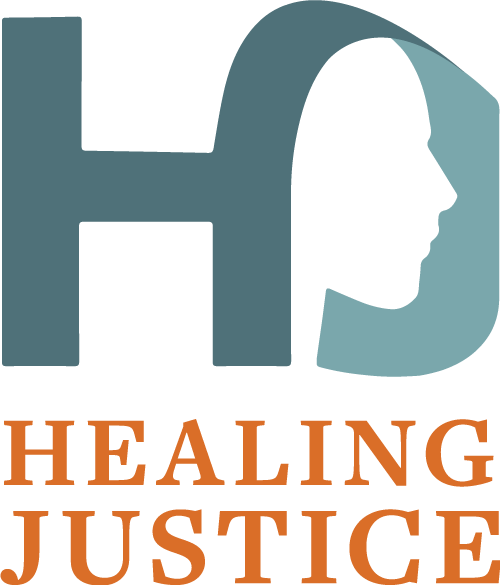Donor Spotlight: An Interview with David Singleton
New Monthly Series Focused on Conversations with Healing Justice Donors
We are excited to introduce our new monthly “Donor Spotlight” series. The series features brief interviews with some of our most loyal donors about why they support Healing Justice. We are kicking off our first installment with an interview with David Singleton, the Executive Director of the Ohio Justice & Policy Center. David has been a Healing Justice supporter since 2016. Below he discusses his work representing the rights of people in prison, what he is most passionate about, and why supporting Healing Justice matters so much to him. David is interviewed by Kris Rose, the Director of Strategic Partnerships for Healing Justice.
Tell me a little bit about the Ohio Justice & Policy Center.
The Ohio Justice & Policy Center has been around for 23 years. We are a nonprofit public interest law firm. We represent people whose rights have been violated in prison. For example, if someone has been receiving inadequate medical care or kept from being able to practice their religion. Our services are all free of charge. We also represent people who’ve been released from prison but are facing barriers to getting a job or finding housing. We help people who have been over-punished, meaning those who’ve served significant portions of their sentences and have the skills and support network on the outside to continue their rehabilitation. We also do policy work. We spend a lot of time at the state capital helping to create laws that are fair, smart, and more humane for people impacted by our criminal justice system.
What are you most passionate about in your work?
I am most passionate about standing up for people who too often are ignored and written off. We never write anyone off. People may have done something bad, but it doesn’t mean they have lost their humanity. When it comes to policy, we will work with people even if it means we don’t agree with them. We all need to work together to improve the system.
How did you learn about Healing Justice?
In 2002, I went to the Airlie Center in Virginia for a death penalty convening. I heard a woman named Jennifer Thompson speak and I knew this was someone that I wanted to meet and get to know. I didn’t have the chance to talk with her then, but I continued to follow her work. In 2016, we invited her to speak at our annual dinner and she graciously agreed to share her story. We went out to dinner afterwards and she told me about Healing Justice. I remember thinking, “I need to find a way to support you to make sure that everyone who is touched by wrongful conviction is healed.” That really spoke to me because I had been representing Tyra Patterson, who had been wrongfully convicted. It was five years of ups and downs before we were able to get her freed. The best part is we walked her out of prison on Christmas morning, 2017. After she was out, she was able to participate in one of Healing Justice’s retreats. That whole concept of healing after wrongful conviction was intriguing to me.
Why do you support Healing Justice?
I believe there is so much damage that happens to people who go through the criminal legal system. To have your whole life taken from you wrongfully, there is just so much damage. When people who have been exonerated come home, they suffer even more trauma than folks who are not innocent. The anger is real. The hurt is there. From my own experience with depression, I know that when things are bottled up, it can become a breeding ground for more depression. There needs to be a place for people to talk about their struggles with people who understand what they have been through. Healing Justice helps more than the wrongfully incarcerated person; it’s about everyone who has been impacted by the wrongful conviction. This work matters.
Is there anything you would like to see Healing Justice undertake over the next few years?
I think you need to keep doing exactly what you’re doing. I want you all to do everything in your power to broaden your footprint so everyone knows about you and can help support your work. I want Healing Justice to become a household name.
David is pictured here with Tyra Patterson on the day she was released from prison, 23 years after being wrongly convicted.

